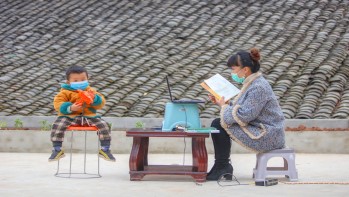
In response to the COVID-19 pandemic, schools across China remained shut after the Spring Festival break and 200 million school children started new semester in February online. To minimise the learning losses due to institutional closure in students, the Ministry of Education (MoE) launched ‘停课不停学’ (tíngkè bù tíngxué), roughly translated as “Suspending Classes Without Stopping Learning” ensuring uninterrupted curriculum-based instruction using networked cloud classrooms, online lectures, and pre-recorded videos sent via educational television.
Many issues surfaced in carrying out distance curriculum-based instruction and student engagement in rural China. Problems experienced by students, parents, and teachers lent to a deficient educational experience for majority of rural children during the school closure period. This has serious implications for students’ lifetime educational attainment and income potential as well as nation’s human capital accumulation. In this paper, I will discuss the policy response formation and educational experience in rural areas during 停课不停学. I will also discuss its impact as well as the challenges and opportunities which have implications for the future of rural education informatisation.
KEYWORDS: Online learning, COVID-19, rural China, education informatisation, ICT4E, educational technologies
© 2019 ICS All rights reserved.
Powered by Matrix Nodes